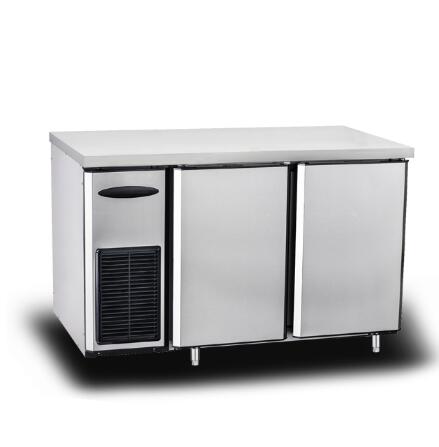Undercounter beverage refrigerator coolers are essential appliances in commercial settings, providing convenient storage and easy access to chilled beverages. However, the noise generated by these coolers can be a concern, especially in environments where customer comfort and tranquility are paramount.
Selecting Low-Noise Models:When purchasing undercounter beverage refrigerator coolers, consider models specifically designed for low noise operation. Manufacturers often indicate the noise level in decibels (dB) for their appliances, allowing you to compare and choose models with lower noise ratings.
Strategic Placement:Carefully consider the placement of the undercounter cooler to minimize the impact of noise. Install the cooler away from customer seating areas or use barriers such as dividers or walls to create distance between the cooler and customers. Placing the cooler in an enclosed space or alcove can also help contain and reduce the noise.
Soundproofing Materials:Use soundproofing materials to absorb and block the noise produced by the cooler. Install acoustic panels or foam insulation around the cooler's exterior to dampen vibrations and reduce sound transmission. Ensure that the materials used are fire-resistant and comply with safety regulations.
Vibration Isolation:Vibrations from the undercounter cooler can contribute to noise levels. To minimize this, place the cooler on vibration isolation pads or rubber mats. These materials absorb and dampen vibrations, reducing the noise generated by the cooler's compressor and other moving parts.
Maintain Proper Ventilation:Proper ventilation is crucial for the optimal performance of undercounter beverage refrigerator coolers. Ensure that the cooler has sufficient space around it to allow for proper airflow. Restricted airflow can lead to increased noise levels as the cooling system works harder to maintain the desired temperature.
Regular Maintenance:Perform regular maintenance on the undercounter cooler to ensure it operates at its best and minimizes noise. Keep the cooler clean and free from dust and debris that can affect its performance and increase noise levels. Additionally, inspect and lubricate the cooler's components as recommended by the manufacturer to prevent excess friction and noise.
Noise Barrier Installation:Consider installing noise barriers in the surrounding area to further minimize noise transmission. Acoustic curtains, soundproof partitions, or sound-dampening screens can be used to create a barrier between the cooler and customers, reducing the impact of noise on the overall ambiance.
Insulated Doors:If the undercounter beverage refrigerator cooler has glass doors, consider models with insulated glass or double-pane doors. These doors help reduce noise transmission and provide better insulation, resulting in quieter operation.
Educate Staff and Customers:Educate your staff and customers about the noise reduction efforts in place. Encourage staff to close the cooler doors gently and inform customers about the measures taken to ensure their comfort. Clear communication can help manage expectations and foster understanding.
Continuous Improvement:Regularly assess the effectiveness of noise reduction strategies and explore new technologies or innovations in undercounter beverage refrigerator coolers. Stay informed about advancements in quieter compressor systems or noise reduction techniques to further improve the overall customer experience.

Model: SK-1200C / SK-1200F
Temp. range: +2~+12℃ / -18℃
Refrigerant: R134a / R404A
Voltage: 220V / 110V
Capacity: 260 liter
Dimension: 1200×700×850mm
◎ Joint-in cooling unit, easy to maintain and mend.
◎ Big unit for high AMB and high humidity.
◎ 201 stainless steel inner and outer.
◎ Castors or adjustable feet.
◎ Digital temperature controller
◎ Auto close door, self evaporating
◎ Hydrophilic aluminum foil, internal thread copper tube.

 English
English عربى
عربى Français
Français русский
русский Español
Español 中文简体
中文简体







